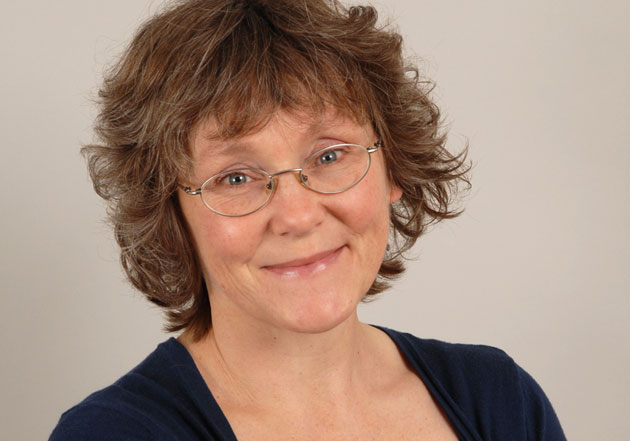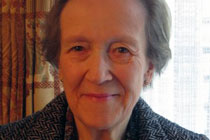 Associate Director
Associate Director8 Priory Road
Bristol
BS8 1TZ
0117 331 0972
D.Abbott@bristol.ac.uk
Professor of Social Policy
School for Policy Studies, University of Bristol
David Abbott is Associate Director of NIHR SSCR.
David is also Professor of Social Policy within the School for Policy Studies (SPS) at the University of Bristol. He joined the Norah Fry Research Centre at SPS in 1999 and much of his work has focused on issues for disabled children, young people and adults Ð as well as their families and the services that support them. He has research interests in: transition to adulthood; multi-agency working; young disabled people who live away from home in residential settings; gay, lesbian and bisexual people with learning difficulties Ð their experiences, the barriers they face and the ways in which they overcome them; and how young people with long term health conditions do or do not access good quality social care support.
https://www.bristol.ac.uk/sps/people/david-w-abbott/index.html
Teresa Atkinson is a Senior Research Fellow who has a long career in social research primarily using qualitative methodologies. She began her career working with NHS Mental Health Trusts evaluating training and psychosocial interventions for family carers of people living with dementia. Following this post Teresa moved to the third sector working as Research Officer for a charity providing education, care and psychological therapies for young people living with complex co-morbid neurological impairment including autism, Down’s Syndrome and chromosome disorders. Within this role, Teresa led on projects to design and evaluate living and learning environments to improve teaching, care and to ensure young people have the opportunity to maximise their independence, autonomy and education. She travelled extensively internationally to disseminate research findings and build research capability amongst frontline practitioners.
Teresa is passionate about understanding the lived experiences of people affected by cognitive impairment across the life span and understanding the ways in which quality of life can be improved She is skilled in working with people as partners in the research journey and in facilitating feedback from a range of participants including people with communication difficulties.
Dr Mary Baginsky joined King’s in September 2013, and continued research started while in the Children’s Workforce Development Council into the progression of the first two cohorts of the Step Up to Social Work programme.
Mary has held positions in academic, public, voluntary and independent and private sectors. She has worked in and with government departments and agencies in the United Kingdom and overseas, local authorities and partnerships, higher education institutions, charities and service providers.
https://www.kent.ac.uk/social-policy-sociology-social-research/people/1413/baker-peter
Annette is an economist within CPEC. Her research interests include the (economic) evaluation of preventative and early intervention in mental health and social care over the life course. This includes interventions that build on strengths and assets of individuals and communities, and which seek to address the complex social determinants of poor mental health.
Annette currently works on a large government-funded project in Tyrol (Austria) that seeks to develop, implement, and evaluate a social-network intervention for children of parents with a mental illness. In recent years, she has led research projects to estimate the economic impact of perinatal mental-health problems and on the return on investment in interventions. Annette’s current work is concerned with estimating the economic costs of perintal mental-health problems globally for various low- and middle-income countries.
Annette has an interest in the interface between research, policy, and practice. She led the economic work for social-care guidelines for the National Institute for Health and Care Excellence (NICE). Annette conducted policy and service research in various areas concerned with evidence-based policy and practice, as well as on system changes and social innovation. She currently leads the impact work for CHANCES-6, a project that seeks to provide knowledge on how to improve the mental health and life chances of young people living in poverty.
https://pure.york.ac.uk/portal/en/researchers/kate-baxter(81e21e51-9931-4325-b96b-2aa40a24e0b7).html
https://www.kent.ac.uk/tizard/staff/acadstaff/julie_beadle_brown.html
 Co-Director
Co-DirectorBryony is Senior Fellow within the NIHR SSCR, as well as leading on a study evaluating hearing dogs.
Bryony joined the Social Policy Research Unit (SPRU) at the University of York in 1991. Since then she has led numerous projects, employing a wide range of research designs and methods. Much of her earlier work concerned children, young people and young adults with long-term or life-limiting conditions or impairments. More recently, whilst retaining an expertise and close interest in this group, her portfolio of work has expanded to include other populations including adults with autism, and frail older people. She also has long-standing interests in parent-directed interventions to manage sleep and behaviour difficulties, and work-related stress in the health and social care workforce. Bryony was appointed Co-Director of SPRU in February 2016.
 Associate Director
Associate DirectorCo-Director
Social Policy Research Unit, University of York
Yvonne is Associate Director for NIHR SSCR.
Yvonne trained as a general and children’s nurse specialising in intensive care, before moving into research. She joined the University of York as a researcher in the Department of Health Sciences in 1999 and moved to the Social Policy Research Unit in 2013 from York Trials Unit where she was deputy director. Over the years she has worked on projects spanning the life course but is particularly interested in issues around professional/ public attitudes and behaviour, particularly in relation to the quality and safety of care. She is a mixed methods researcher with expertise in developing projects that evaluate complex interventions in both health and social care.
https://www.bristol.ac.uk/sps/people/ailsa-m-cameron/index.html
https://www.bristol.ac.uk/sps/people/john-s-carpenter/index.html
Sarah Carr is an academic with a particular interest in service user and survivor knowledge and research. She has personal experience of mental distress and mental health service use and uses this to inform all her work
https://www.birmingham.ac.uk/staff/profiles/social-policy/carr-sarah.aspx
https://www.research.manchester.ac.uk/portal/paul.clarkson.html
https://www.northumbria.ac.uk/about-us/our-staff/c/edmund-coleman-fountain/
https://www.challengingbehaviour.org.uk/about-cbf/whos-who.html
https://www.kcl.ac.uk/sspp/policy-institute/scwru/people/cornes/index.aspx
 m.p.dangoor@lse.ac.uk
m.p.dangoor@lse.ac.uk
Margaret has been involved with the SSCR since it set up its first user, carer, and practitioner group. She is also a Research Involvement Manager, PSSRU, LSE; research advisor for the PSSRU University of Kent and a member of the MODEM dementia research project team.
Margaret is a carer of her husband who has advanced dementia; her mother also suffered from the disease for many years before her death at age 102 in 2013.
Margaret’s career background was in the NHS as an RGN, later moving into general management. She has an MA in Health Law and post-graduate diploma in risk management. For 10 years she was executive director of a patient safety organisation based at the Royal Society of Medicine, she is a life fellow and a former vice-president of the Society.
For over 25 years Margaret has been involved with the community and voluntary sector, initially as a chair/board member of various organisations before moving into patient/user/carer representative roles at all levels including research. Over the last ten years she has increasingly promoted the interests of people with dementia and their carers and has been involved with the implementation of the National Dementia Strategy and more recently with planning for the implementation of the Care Act 2014. She facilitates an ÔExperts by ExperienceÕ carers group for carers of people with dementia; is a volunteer for the AlzheimerÕs Society and an Ambassador for Carers UK. She is a carer affiliate of the National Dementia Alliance and as ÔDementia ChampionÕ is supporting the GovernmentÕs ÔDementia FriendsÕ initiative.
Associate Professorial Research Fellow
Personal Social Services Research Unit, LSE
Jose Luis is Deputy Director and Associate Professorial Research Fellow at PSSRU,LSE. A health and social care economist, he specialises in ageing-related policies, the interaction between health and social care, and the economic evaluation of health and social care services and systems. In 2010, he co-founded the International Long-term care Policy Network (ILPN) linking academics and policy makers on the analysis of long-term care, and also set-up the Economics of Social and Health Care Research Unit together with the universities of Kent and York, and the Quality and Outcomes Research Unit with universities of Kent and Oxford. He has advised bodies such as the English Department of Health, the UK Treasury and the World Health Organisation.
https://www.research.manchester.ac.uk/portal/katrina.forsyth.html
https://www.birmingham.ac.uk/staff/profiles/social-policy/glasby-jon.aspx
https://www.kent.ac.uk/tizard/staff/acadstaff/nick_gore.html
Kelly is a Senior Lecturer in Social Policy based in the Department of Social Policy, Sociology and Criminology at the University of Birmingham. She is the Director of Global Engagement for the School of Social Policy. Her main research interests include ageing, health/social care, migration and the third sector.
https://www.birmingham.ac.uk/staff/profiles/social-policy/hall-kelly.aspx
Catherine’s research interests include psychosocial interventions for people with dementia, the cost-effectiveness of assistive technologies in managing long-term health and social care needs, intermediate care, residential care provision, and resource allocation within residential and nursing homes.
Prior to taking her Master’s degree, she worked as an occupational therapist in both NHS and social-services settings in the UK and Canada.
She holds a PhD in Social Policy from London School of Economics and Political Science, an MSc in Health Policy, Planning, and Financing from LSE and the London School of Hygiene and Tropical Medicine, a BSc in Occupational Therapy from the University of Toronto, Canada, and a BA in English Literature, also from the University of Toronto, Canada.
Monique is a critical qualitative researcher with a particular interest in gender and sexualities. She holds a PhD in Psychology but works across disciplinary boundaries. Much of her research explores sex work in various global contexts, focusing on questions around men and masculinities, sexuality, disabilities, identity, stigma, power, race, and class. She is particularly interested in discursive, narrative, reflexive, participatory, and decolonial approaches to critical qualitative research.
Eleanor is a sociologist whose research and teaching are broadly concerned with social care, ageing, work and employment, social inequality, and social theory.
https://www.bristol.ac.uk/people/person/Ellie-Johnson-4dbb961e-50ad-4d2d-b079-b2730cc2ca19/
Karen’s research interests include costing methodologies, quality and outcomes in health and social care and economic evaluations.
https://www.kent.ac.uk/sspssr/staff/pssru/pssru-deputy-director/jones-k.html
Dementia and Ageing Research Team (DART)
I trained as a mental health nurse in Warley Hospital, Brentwood, Essex (1983-1986) before moving to Bangor, North Wales in Autum 1986. Once in North Wales, I held a number of clinical appointments in dementia care, including 4 years as a community mental health nurse in a community mental health team for people with dementia in Merionnydd, Gwynedd, before moving into the University of Wales, Bangor in 1993 to pursue teaching and academic qualifications. My Ph.D. was studied part-time (1993-1999) and was focussed on the social construction of dementia as experienced by people with dementia and their families. At Northumbria University I held the first Professorial Chair in dementia care nursing in the UK before moving to The University of Manchester in October 2006 to take up the post of Professor of Older People’s Mental Health Nursing, a joint appointment with Greater Manchester Mental Health NHS Foundation Trust.
 Research Fellow (Health Economics)
Research Fellow (Health Economics)Philip is a Senior Research Fellow in the Health Economics Unit. His research interests relate to the measurement and valuation of outcomes in economic evaluation. In particular, Philip is interested in the inclusion of broader outcomes within economic evaluations of health and social care interventions and the use of the capability approach within health economics.
https://www.birmingham.ac.uk/staff/profiles/applied-health/kinghorn-philip.aspx
 Director
DirectorProfessor
Care Policy and Evaluation Centre, LSE
Martin Knapp has been Director of the NIHR School for Social Care Research since 2009. He is also Professor of Social Policy and Professor in the Care Policy and Evaluation Centre (formerly PSSRU) at the London School of Economics and Political Science. He was Director of the Personal Social Services Research Unit (PSSRU) until June 2019.
Martin’s current research emphases are primarily dementia, child and adult mental health, autism and long-term social care; much of his work has an economic focus, and in all of it he seeks to tease out the policy implications. He has published almost 500 peer-review journal papers and 15 books. His work has had numerous impacts on policy and practice in these areas.
Kathleen Lane is a qualitative researcher in the School of Health Sciences whose research interests include social engagement and participation in later life, service user experience and psycho-social consequences of disability.
 MPhil/PhD Candidate
MPhil/PhD CandidateShoshana Lauter is an MPhil/PhD candidate within the Department of Health Policy and a recipient of the NIHR School for Social Care Research Studentship at CPEC. She conducts ethnographic research on the relationship between trauma-related psychiatric diagnosis and financial tenability amongst social care users.
Shoshana’s interests have developed from extensive study of medical sociology and class theory. She has researched and worked in various public health settings, including a major New York City hospital emergency room, a reproductive health and family planning clinic, and affordable public housing. Within these spaces, she critically analyses the cyclical relationship between poverty, mental illness, psychiatric practices, and social support use.
Shoshana received her BA in Sociology at Barnard College, Columbia University, in 2018 (senior thesis: The New Chronic Condition: An Observation of the Medicalization of Poverty in Urban Emergent Care). She received her MPhil in Sociology from the University of Cambridge in 2019 (dissertation: From Diagnosis to Qualifier: A Study on Trauma- and Stressor-Related Psychiatric Disorders and Access to Services in New York’s Inner City).
Professor Geraldine Macdonald was appointed to the Board of Trustees in September 2017. Geraldine qualified as a social worker in 1979 and worked in children’s services until 1987, when she moved into academia. She was first appointed to the Chair of Social Work at Bristol in January 1998. She returned as Professor of Social Work in October 2015, after working first as Business Director (Information and Knowledge Management) at the Commission for Social Care Inspection (2004-2006) and then as Director of the Institute for Child Care Research in Belfast.
Juliette Malley is an Assistant Professorial Research Fellow at the Personal Social Services Research Unit at London School of Economics and Political Science and the University of Kent. She is also a member of the Quality and Outcomes of person centred care (QORU) policy research unit.
Her research interests include the measurement of outcomes and quality in long-term care, performance and quality of long-term care systems, regulation of long-term care and financing of long-term care systems.
She is a member of the team that developed ASCOT, a new measure of social care outcomes for use in economic evaluation, and led the development of the Adult Social Care Survey that is currently used by the Department of Health to monitor the quality of care provided to publicly-funded service users. Juliette has also contributed to various studies looking at the future of funding for social care.
Juliette is currently involved in the EXCELC study, funded by NORFACE under the Welfare State Futures Programme, which is seeking to compare the effectiveness and efficiency of non-institutional long-term care (e.g. home care, day centres) for older adults and their informal carers in Austria, England and Finland. The aim of this study is to strengthen the research base in long-term care and help guide policy-makers and practitioners to make outcomes-focused, economically-sound decisions about long-term care.
 Professor of Social Work
Professor of Social WorkDirector
NIHR Policy Research Unit in Health and Social Care Workforce
Jill Manthorpe is Professor of Social Work at King’s College London and Director of the NIHR Policy Research Unit in Health and Social Care Workforce, based in the Policy Institute. She was made CBE in the Queen’s Birthday Honours List 2022 for services to social work and social care research.
From 2002-2018 she was Director of the Social Care Workforce Research Unit (initially sharing the position with Peter Huxley).
Professor Manthorpe is an NIHR Senior Investigator Emeritus and participated in a Senior Leadership programme funded by the NIHR with Ashridge Management School. Currently she is involved in advisory work for the Department of Health and Social Care on several subjects and works closely with several social care and health sector employers to link research, policy and practice.
In the past year she has presented research findings to international conferences in Australia, Singapore, Norway and Northern Ireland; she also travels widely in the UK to speak with local and regional networks, mainly through Making Research Count. She works on a number of Unit studies that are funded by the Department of Health and Social Care and also on other studies funded by the NIHR, the ESRC, and research charities with Unit colleagues and other research teams. Jill also provides assistance on workforce matters to local councils, NHS bodies, and employers on a pro bono basis and to user, carer and patient groups about evidence and communications. She provides expert advice to NICE and to other NHS Arm’s Length Bodies about care services and workforce initiatives.
Within King’s College London, Jill supervises post-graduate and doctoral students to build capacity in workforce research.
Jill is a Trustee of the Order of St John Care Trust and of the Centre for Policy on Ageing and Patron of the Greater London Forum of Older People.
She is a Fellow of Skills for Care and was appointed Fellow of the Academy of Social Sciences in March 2015.
https://www.kent.ac.uk/tizard/staff/acadstaff/michelle_mccarthy.html
David is Associate Professorial Research Fellow in Health Policy and Health Economics within PSSRU at LSE.He is involved in a wide range of work on mental health and public health in the UK, Europe and at the global level. He is a co-ordinator of the Mental Health Economics European Network, a member of NICE’s Public Health Interventions Advisory Committee since 2007, Co-Convenor of the Cochrane Campbell Economic Methods Group and has acted as an advisor to a range of organisations, including the European Commission and World Health Organisation, and national/regional governmental departments, including the Department of Health in England and equivalent bodies in Scotland and Wales. He has published over 300 peer reviewed papers and reports, including a report for the UK Department of Health which looked at the economic case for investing in mental health promotion and mental disorder prevention. He is the editor of two recent books.
Manager
Care Policy and Evaluation Centre, LSE
Anji Mehta is Finance and Impact Manager within the NIHR School for Social Care Research, Manager of the Care Policy and Evaluation Centre (formerly PSSRU) and Manager of the NIHR Policy Research Unit in Adult Social Care at the London School of Economics and Political Science. Over the last ten years, Anji has been working on studies exploring knowledge exchange and impact for adult social care research, implementation of research, engagement of practice and policy in research processes, and the types and use of knowledge in decision-making in social care practice. She is interested in how research, policy and practice work together to develop, carry out and implement research to improve policy and practice for adult social care.
https://www.birmingham.ac.uk/schools/social-policy/staff/profile.aspx?ReferenceId=4774
 Deputy Director
Deputy DirectorJo Moriarty is a Senior Research Fellow at KingÕs College London in the
Social Care Workforce Research Unit. She has worked as a researcher
for 20 years and has undertaken research into a range of social care
topics, including support for family carers and people with dementia,
ethnicity and social support, social work education and workforce
issues. She has also undertaken a number of research reviews. She is
especially interested in mixed methods research and in exploring
ways of creating partnerships between researchers, practitioners,
people using services and family carers.
https://www.kcl.ac.uk/sspp/policy-institute/scwru/people/moriarty/index.aspx
Catherine Needham is Professor of Public Policy and Public Management. She is part based at the Health Services Management Centre, developing research around social care and policy innovation. She is also part-based in the University’s Public Services Academy, researching new approaches to public service workforce development.
https://www.birmingham.ac.uk/staff/profiles/social-policy/needham-catherine.aspx
Karen joined HSMC as a Senior Lecturer in Healthcare Policy and Management in November 2013. Originally qualifying as a clinical psychologist, Karen has over thirty years’ experience in the health and social care sector, including direct service provision and commissioning. For the past fifteen years Karen has been involved in research, consultancy and system development for a broad range of health and social care organisations including government. Her recent work has focused on the implementation of health and social care policy, patient and public involvement, advocacy and action to tackle health inequalities and discrimination. Karen has a particular interest in mental health, and is a core member of the Institute for Mental Health at the University. She is a Chartered Psychologist, an Associate Fellow of the British Psychological Society, a Fellow of the Royal Society for Public Health and a Senior Fellow of the School for Social Care.
https://www.birmingham.ac.uk/staff/profiles/social-policy/newbigging-karen.aspx
Louise initiated her career at the School of Health and Related Research (ScHARR) at the University of Sheffield, completing her BMedSci (Hons) in Health Sciences (2009) and Masters Degree in Public Health and International Development (2011). Louise developed her career in health services research and advanced her interest in the evaluation of complex interventions, completing a doctoral thesis (2018) evaluating the use of videoconferencing for remote healthcare provision for older adults in care homes. Louise started her post-doctoral career as a Research Fellow on the CHAMP-1 and IMPACT projects at the University of York (2018). Following on from this she worked at the Centre for Primary Care, University of Manchester on the RTI-RAND project (2018-2019). This project aimed to develop a guide to inform parents’ decision making about when may be appropriate to consult a GP if their child has a suspected respiratory tract infection. Louise re-joined the University of York as part of the Social Policy Research Unit in 2019. She now works on the HOPES study which aims to develop a support worker intervention to improve engagement in social care amongst older adults with mental health problems.
 Research Associate
Research AssociateDr Jennifer Owen is a Research Associate at the NIHR Health & Social Care Workforce Research Unit (HSCWRU), based in the Policy Institute. She joined King’s and HSCWRU in April 2021. At the Unit, Jen is leading an exploratory study, funded by the NIHR School for Social Care Research (SSCR), of the role of professional decluttering services as part of interventions with people who hoard. She was previously part of a team examining self-neglect and hoarding among older people, also funded by the NIHR SSCR.
In 2019, Jen completed a PhD based in the School of Geography and Planning at Cardiff University, funded by the ESRC. Her thesis examined what the growth of the self-storage industry in the UK could tell us about the changing needs of individuals and families in the face of life-course trajectories, transitions and events – including bereavement, moving home and abroad, and growing older.
With a background in social and cultural geography, Jen’s research is broadly concerned with the spatial processes and practices which construct everyday life. In particular, she is interested in the place of material objects in experiences of home, identity, mobility and the life course.
Jen is an Associate Fellow of Advanced HE, Communications Officer of the Royal Geographical Society Social and Cultural Geography Research Group, and co-founder of the UK Clutter Research Group. She has recently collaborated on the Methods for Change project, funded by ASPECT, which captures and shares the importance of social science methods for societal change.
 Senior Lecturer in Nutrition
Senior Lecturer in NutritionAngeliki’s research focuses on understanding the factors that influence dietary behaviour and developing strategies to improve dietary habits to prevent chronic disease.
Her specialist area of research is the exploration of traditional diets (definition, assessment of adherence, barriers and facilitators to adherence, acceptability, promotion, effect on chronic disease risk factors and incidence), by integrating theoretical models of behaviour change into interventions.
Angeliki’s research expands to the investigation of services for older and vulnerable adults, particularly Meals on Wheels and community meals. This involves qualitatively exploring views and experiences of service users and providers and evaluating effects of the service on nutritional, health and social care outcomes.
https://research-information.bris.ac.uk/en/persons/angeliki-papadaki
Professor Nicholas Pleace joined CHP in 1991. His research explores the interrelationships between housing and poverty. His interests centre on comparative research, particularly across Europe and the Anglophone countries and on transdisciplinary research that encompasses inequalities in health, life chances/opportunity, area effects in urban space, housing precarity and homelessness.Nicholas joined the European Observatory on Homelessness, operating under the auspices of FEANTSA in 2010, and he is also a member of the Women’s Homelessness in Europe Network (WHEN).
 Senior Research Associate
Senior Research AssociateJill is a researcher in the Centre for Health and Social Care Research (School of Policy Studies) currently working on the DICE (Diversity in Care Environments) study which explores the social inclusion of older people from diverse backgrounds in housing with care and support (HCS) schemes in England and Wales.
Jill’s research areas include: the health and wellbeing of adults with learning disabilities and family carers, mental health of teachers and students in secondary schools in England and Wales, mortality of people with learning disabilities and children’s social care issues.
Jill completed a PhD at Bangor University which comprised four individual but related studies adopting both qualitative and quantitative methods relating to adults with learning disabilities and their family carers and outcomes of health and wellbeing.
https://research-information.bris.ac.uk/en/persons/jillian-m-powell
 Professor of Social Care Research and Director, Social Care and Society
Professor of Social Care Research and Director, Social Care and SocietyProfessor Catherine Robinson is Deputy Director of SSCR at Manchester.
Catherine leads on developing research collaborations and leveraging external funding. She has a global research portfolio in mental health, social care and mixed methods research, including suicide prevention in India and programmes of work in dementia care and NHS/social care integration.
https://www.kcl.ac.uk/sspp/policy-institute/scwru/people/samsi/index.aspx
After working in front-line services, first with older people and then with children, Sophie’s first degree was a BSc in Social Policy from the LSE. Over many years working in the areas of families and relationships and related policies and services her interests became more sociological, and she has a Masters in Social Research Methods and a PhD from the Department of Sociology at the University of Surrey.
Sophie is interested in research that contributes to service improvement. Her work has included process evaluations of services in the fields of health, social care and domestic violence; designing complex interventions; and feasibility studies of complex interventions. She has worked on a number of studies around the substantive areas of health and social care services; work-life balance; everyday family practices; social policy and family life; gender and generation.
Much of Sophie’s research has been with vulnerable and hard to reach groups, primarily older people, children and teenagers, fathers and sex offenders She has used a variety of qualitative methods and am interested in methodological exploration.
A common theoretical thread to Sophie’s work is care – what it is, how people achieve it, what it feels like to receive it and the implications of giving it. Other theoretical interests are practices and their display; childhood; temporality.
Jason is a Lecturer in Social Work, and Deputy Director of PGR for the School of Social Policy. His areas of teaching and research include gender and sexuality, leadership in social work, and children and families social work. He is co-chair of the UK regional network for International Partnership for Queer Youth Resilience (INQYR) and previously chair of Sexuality in Social Work interest group, and is a founding member of European Social Work Research Association. His research focusses on gender and sexuality, particularly improving the wellbeing of LGBTQ+ young people, and professional engagement with LGBTQ+ people, predominantly using evidence-based methodologies and mixed methods. His research also examines leadership in social work and child protection practices.
https://www.birmingham.ac.uk/staff/profiles/social-policy/schaub-jason.aspx
Dr Dia Soilemezi is a Researcher Psychologist and a Qualitative Methodologist. She is a Senior Research Fellow in Department of Psychology and currently works part-time as a Senior Research Adviser at the NIHR-funded Research Design Service South Central (RDS SC), based at Research & Innovation Services. She has previously worked as a Research Fellow at the Department of Primary Care and Population Studies, University of Southampton.
Before joining RDS SC in 2017, Dia worked as a Research Fellow in ageing-related projects, University of Portsmouth. Before embarking on research, Dia was employed in a variety of NHS clinical settings in Brighton and Portsmouth, supporting adults and the elderly with stroke, dementia and mental health problems.
https://www.port.ac.uk/about-us/structure-and-governance/our-people/our-staff/dia-soilemezi
Denise Tanner is a Senior Lecturer on BA and MA Social Work courses. Her areas of teaching and research interest include adult social work/social care policy and practice; social work with older people; social work skills; social perspectives of mental distress; and service user involvement in education and research. She has lead responsibility for Postgraduate Research students in the Department of Social Work and Social Care.
https://www.birmingham.ac.uk/staff/profiles/social-policy/tanner-denise.aspx
Dr Triantafyllopoulou has a BSc in Neuropsychology from the University of Central Lancashire, an MSc in Cognitive Neuropsychology and a MRes in Psychology from Oxford Brookes University. She completed her PhD in Clinical Psychology of Intellectual Disabilities in 2013 at the Tizard Centre, University of Kent.
Her research and consultancy focuses on health, psychological interventions and autism assessments. She is a member of the Tizard Ethics committee and has been working with people with intellectual disabilities since 2006.
Alex is a social researcher with research expertise in: men’s mental health; support and adult social care service use; loneliness, ageing and masculinities.
https://www.bristol.ac.uk/people/person/Alex-Vickery-6304b4af-5cca-4d7e-9965-a72eda72ef14
 Lecturer in Social Policy
Lecturer in Social PolicyJoseph’s research interests centre on understanding and improving the way health and social care policy is enacted in practice. This is informed by my background working in disability social care services. He uses various qualitative methods, including conversation analysis, to examine how policy is ‘talked into being’ and to highlight its impact on people themselves. Much of Joseph’s research focuses on issues affecting disabled people, with a focus on producing work that makes a positive impact outside of academia. This is often achieved through co-producing work with disabled people themselves.
https://research-information.bris.ac.uk/en/persons/joseph-c-webb
Karen has a broad background in public policy, social policy and public management and governance, with the focus of her work for about the last twelve years having been on ageing. She has carried out numerous research projects on this general theme, including research on local community support services for older people, extra care housing and support, social care and older adults, and extended working life.
https://www.bristol.ac.uk/people/person/Karen-West-096a3911-5de1-475a-9a46-3b088006a07a
https://www.northumbria.ac.uk/about-us/our-staff/w/phillip-whitehead/
 Senior Research Fellow
Senior Research FellowDr Mark Wilberforce is a social care and social work researcher with a background in economics, and a particular interest in the community support of older people with dementia and mental health needs. His work is around three key research interests:
Mark’s career in health and social care research began as an economist in the Department of Health before later joining academia. He has experience in a variety of impact study designs including randomised trials, cohort studies, and some quasi-experimental methods; in addition to general cross-sectional research, qualitative studies as part of mixed-method designs, and a range of literature review methods. He has a strong interest in the design and testing of outcome and experience measures, including Rasch/IRT techniques.
https://www.lse.ac.uk/researchandexpertise/experts/profile.aspx?KeyValue=r.wittenberg%40lse.ac.uk
https://www.kcl.ac.uk/sspp/policy-institute/scwru/people/woolham/index.aspx
https://www.research.manchester.ac.uk/portal/alys.young.html
Wenjing’s research expertise and interests focus on health and social care, ageing and social policy. With experience using both qualitative and quantitative methods over 9 years studying the health and social care sector, she has worked on a few policy- and practice- oriented research projects.
Wenjing is currently leading an SSCR-funded project on ‘Understanding and supporting older people’s ‘transition’ between different care settings: co-production of practice guidance for social care practitioners’. She also works on the projects ‘Kent Adult Social Care Partnership’ (Funder: NIHR HS&DR), ‘The dyadic wider impact of social care: support for older carers and the people they care for’ (Funder: SSCR), ‘Identifying and improving the capacity of health service staff to conduct research’ (Funder: Cancer Research UK) and ‘Realist Evaluation of Autism ServiCe Delivery (RE-ASCeD)’ (Funder: NHS England).